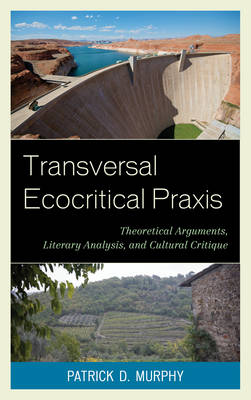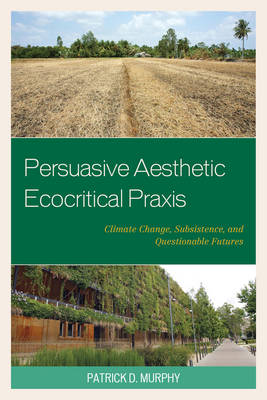Ecocritical Theory and Practice
2 total works
In Transversal Ecocritical Praxis: Theoretical Arguments, Literary Analysis, and Cultural Critique, Patrick D. Murphy, Ph.D, utilizes ecocriticism and ecofeminism to develop his concept of transversal practice: an interdisciplinary combination of theory and applied criticism. He begins by explaining the necessity for cutting across disciplinary boundaries of all kinds in order to address the ecological dimensions of culture and literature. The dialogical foundation of this orientation is elaborated through a consideration of the theories of Mikhail Bkahtin, particularly in terms of the ethical responsibilities of the reader and critic. Murphy then takes up issues of identity and subject formation in relation to genetics, embodiment, and selfhood. These same issues play out in the history of the aesthetic category of the sublime, which the author critiques from an ecofeminist perspective. Following that, he turns attention to cultural issues of consumption, both at home and internationally, looking particularly at postcolonial literature and forms of resistance to globalizations and agricultural land grabs. Resistance and postcolonial literature is further analyzed through consideration of two book-length Latin American poetic sequences, one by Pablo Neruda and the other by Ernesto Cardenal. Switching from works focused on the present, Murphy turns his attention then to how these themes play out in the future oriented worlds of science fiction. He concludes with two chapters that combine ecocriticial cultural critique and economic analysis in studies of the destructive role of megadams, particularly in Asia, and the impact of the combined threats of peak oil and climate change on one island's tourist economy. The conclusion contains a discussion of further drivers of future ecocritical analysis. Traversing a wide range of examples, literary, cultural and economic, this work fleshes out the benefits of an ethically grounded interdisciplinary ecocriticism.
Persuasive Aesthetic Ecocritical Praxis continues Patrick D. Murphy's focus on transversal ecocritical praxis by considering literature and cinema in terms of the persuasive force of aesthetic activity and whether or not artistic production and its criticism can be considered forms of activism. Murphy argues that literature and other forms of aesthetic production hold out the promise of being able to move some individuals deeply through both affective and intellectual engagement in ways that facilitate ideological reflection. To analyze aesthetic production ecocritically requires a transversal orientation in order to work continuously at accommodating a vast array of often seemingly disparate perspectives, disciplines, and contextual information, as well as the ever changing thematic, plot, setting, and contextual elements of the aesthetic works under consideration and the responses of changing audiences through time and across cultures. Murphy demonstrates this approach through presenting theories of transversality and applying them with attention to issues of propaganda, agitation, and persuasion, both in terms of artistic production and the criticism of such production. He also brings an ecofeminist orientation to the fore with particular attention to the gendered economic aspects of environmental issues in an age of land grabs and plantation economies. Along the way he treats a wide range of literary works, films and miniseries. In American literature he discusses realist and science fiction works, from Susan Fenimore Cooper's Rural Hours to Paolo Bacigalupi's The Windup Girl, Barbara Kingsolver's Flight Behavior to Kim Stanley Robinson's 2312, and Ana Castillo's So Far from God to Leslie Marmon Silko's Gardens in the Dunes. In international literature, he analyzes Mo Yan's The Garlic Ballads, Jiang Rong's Wolft Totem, Michiko Ishimure's The Lake of Heaven, Miyuki Miyabe's All She Was Worth, and other novels. The book concludes with a reading of Ernest Callenbach's Ecotopia and Ecotopia Emerging, an Afterword recommending further directions for transversal ecocritical research an and interview that discusses Murphy's previous book, Transversal Ecocritical Praxis, and provides some personal background on the author.

